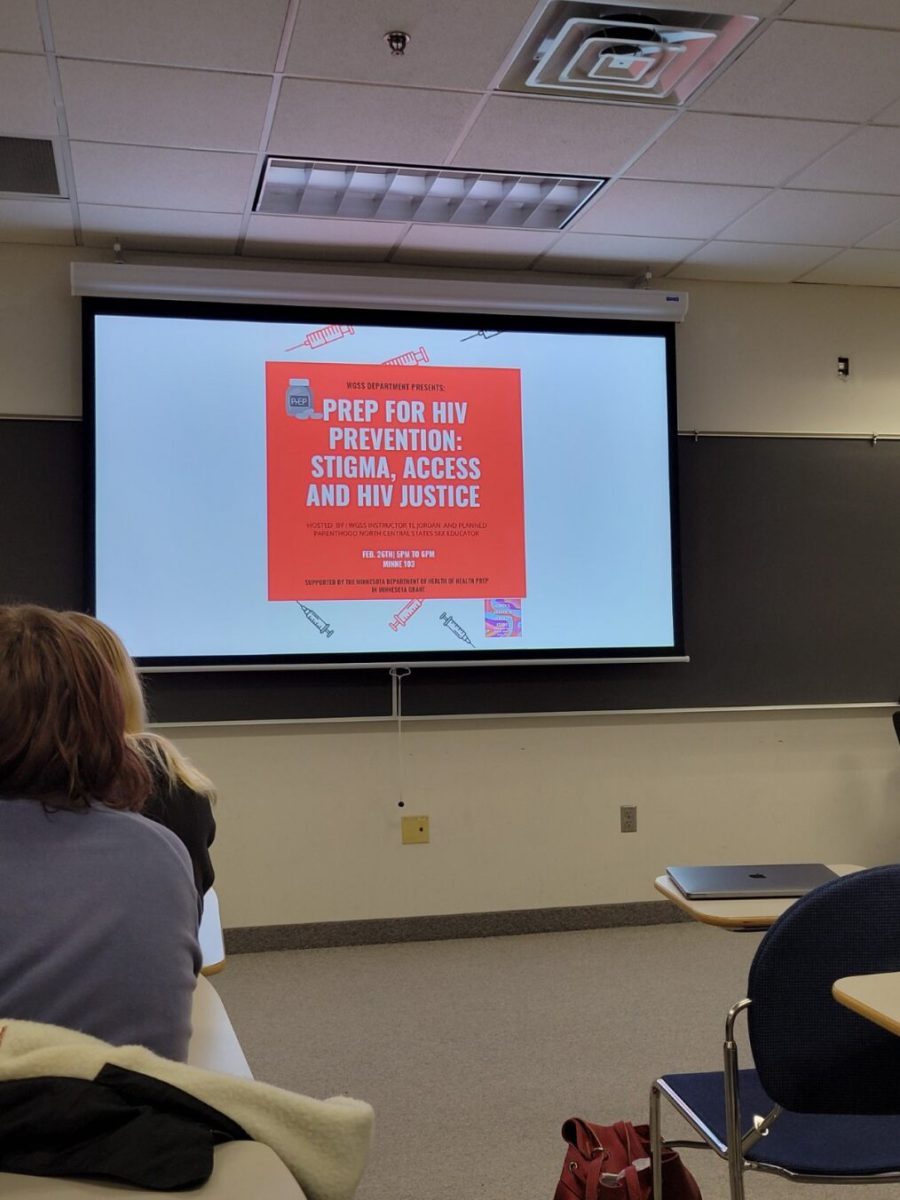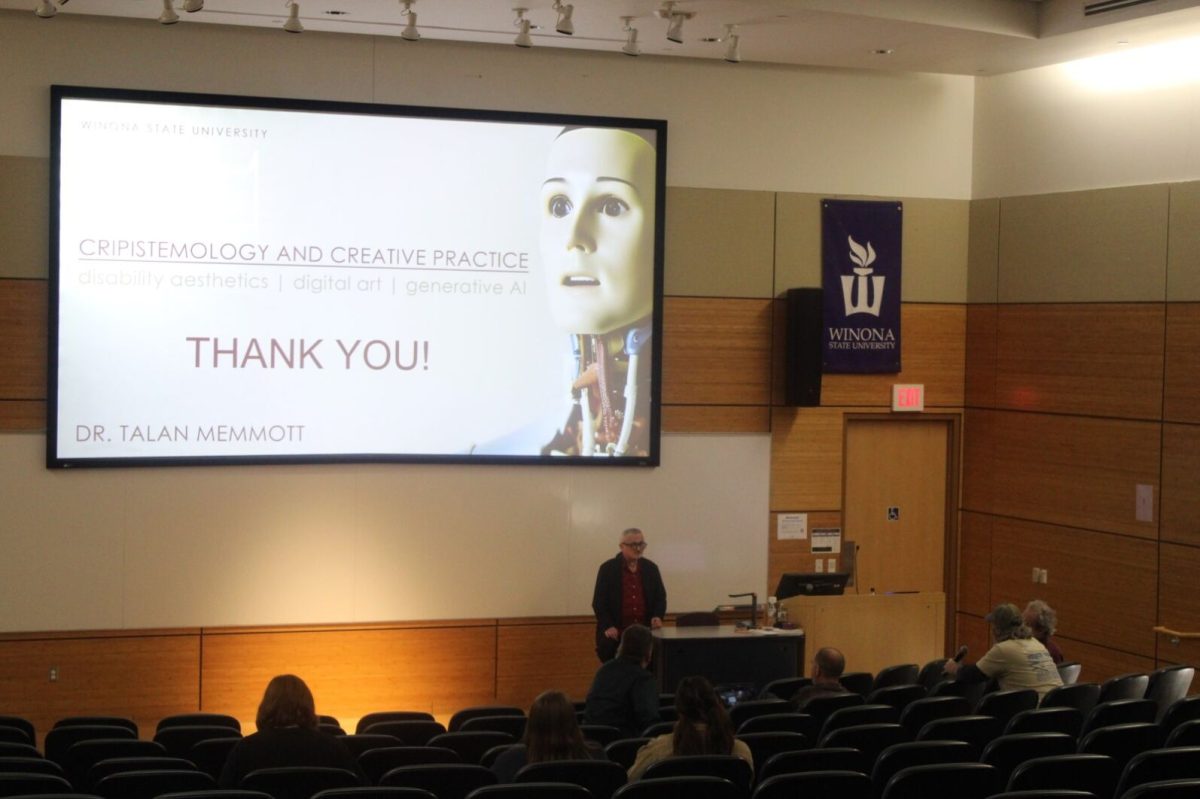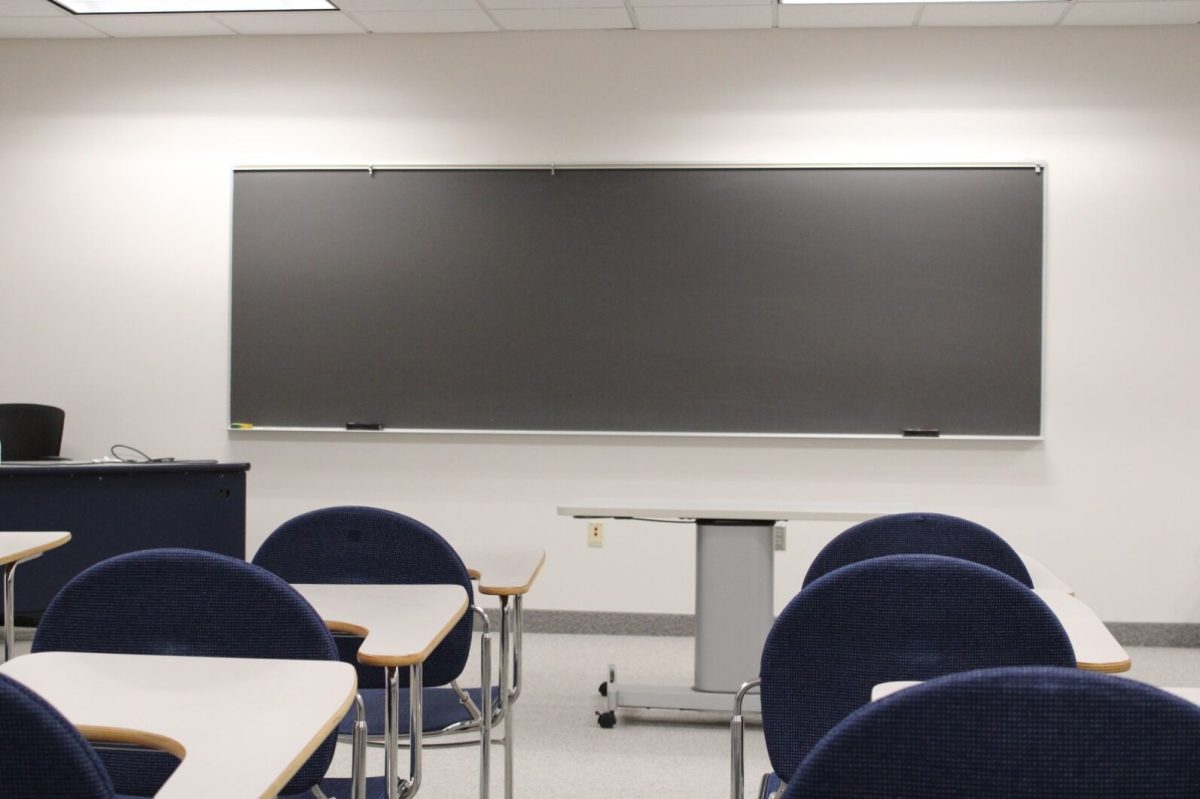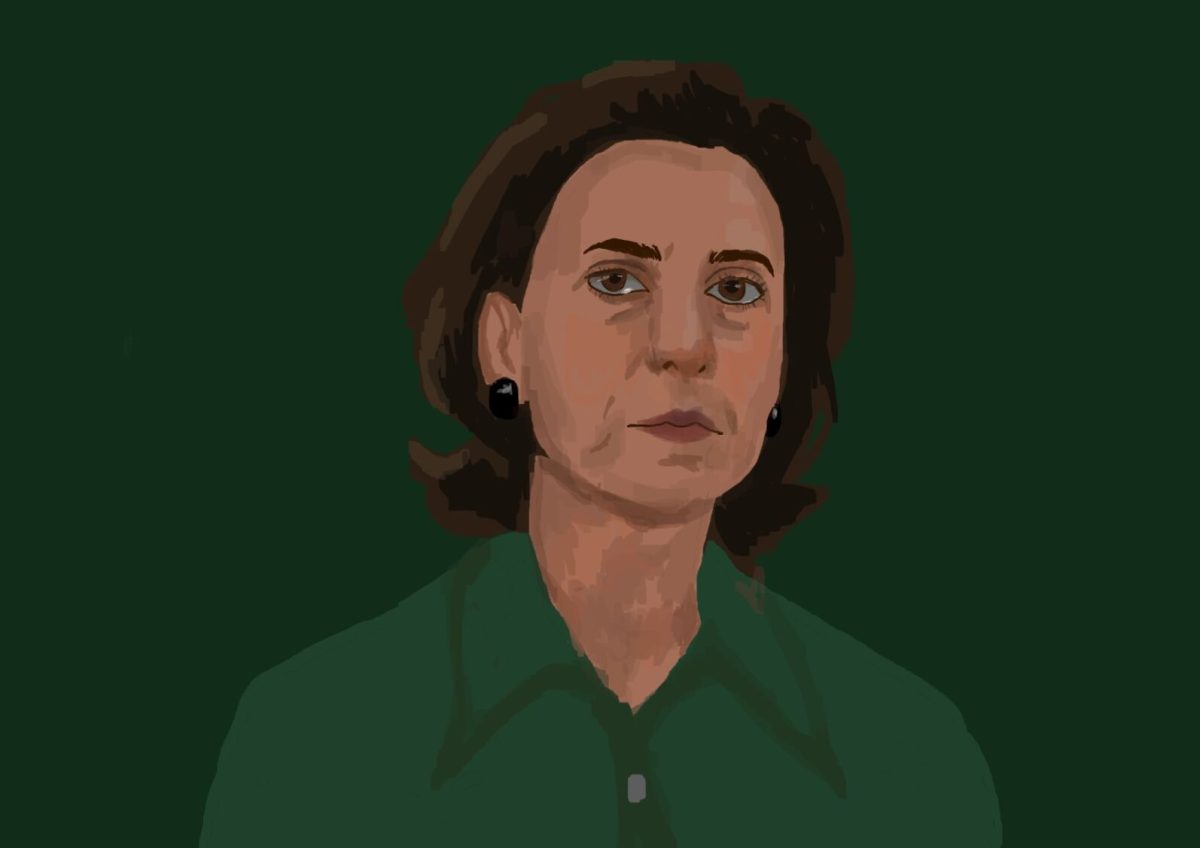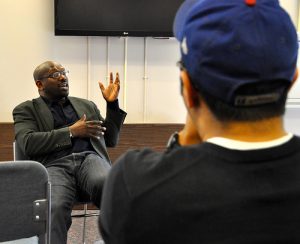
BARTHOLOME RONDET
Abby Derkson/Winonan
In today’s world, the voices on the radio and on pages of poetry are often voices of dissent, voices of change. For the Inclusion and Diversity series, “The Art of Resistance,” Winona State University held several presentations on how today’s music, art and poetry says “no.”
Dr. Haki Madhubuti presented for the series. Madhubuti, an activist as well as a poet, author and professor, discussed civil rights and the power of language. In his poetry reading, Madhubuti read from his recent poetry collection “Liberation Narratives: New and Collected Poems: 1966-2009” and discussed the importance of political activism.
A major contributor to the black arts movement in the 1960s, Madhubuti did not always embrace his race and culture. When he was 14, Madhubuti hated his color. It wasn’t until his mother encouraged him to read Richard Wright’s “Black Boy” that his opinion changed.
“For the first time,” Madhubuti said, “I read literature that was not an insult to my race.”
At 18, Madhubuti enlisted in the military as a means of survival. By then he had begun to write poetry, and before he was 21, he had read just about every book in the English language about blackness and black culture,” he said.
“What saved my life,” Madhubuti said, “was literature, poetry and art.”
Through his poetry Madhubuti began to realize the power of language. Madhubuti said that poetry “informed [his] political consciousness.” Influenced by poets such as Gwendolyn Brooks, Robert Hayden and Langston Hughes, Madhubuti began to use his poetry as a platform for activism.
During the reading, he spoke about a few of his causes, including the mistreatment of women, the joy in self-knowledge and the importance of the family.
“We have been raised in a culture that is sexist and racist,” he said. “It is our obligation to question what is wrong or false.”
For fifth-year senior Courtney McCaw, Madhubuti’s poetry reading was both informative and eye-opening. “Madhubuti values poetry as a tool for spiritual and personal growth,” she said. “He sees it as a tool of empowerment.”
Another tool of empowerment that was crucial to the black arts movement was music. Bakari Kitwana, a journalist and activist, conducted a workshop as part of the “Art of Resistance” program that specifically touched on music. Kitwana and Madhubuti participated in the final program of the series, “An Intergenerational Dialogue Between the Civil Rights and Hip-Hop Generations,” and discussed the way activism has transformed from the civil rights grassroots movement to today’s hip-hop, media-driven movement.
In the 1990s the hip-hop arts movement exploded in terms of popularity, but was only made possible because of the black arts movement in the 60s and 70s. Kitwana said that until the 90s, hip-hop activists and people for social change were two separate groups.
The black arts movement was about identifying one’s self and opening the minds of various institutions. The latter is a tradition that hip-hop activism continues today. Big statements could be made in hip-hop. The civil rights movement broke down the barriers, but the fight continued.
Initially, there was a struggle to build hip-hop into a movement.
“For hip-hop,” Kitwana said, “for every motivated artist, we can find one hundred to do the opposite.”
The struggle to build a movement existed because of the differences between the civil rights and hip-hop movements. The assassination of civil rights leaders led the hip-hop movement to develop a different approach. There was not a solitary leader in the hip-hop movement. In today’s activism, everyone is a leader.
This lack of central leadership, Madhubuti noted, was one of the struggles of the modern hip-hop movement. Madhubuti and Kitwana discussed the recent Jay-Z/Harry Belafonte feud, when Belafonte criticized Jay-Z for not assuming a responsibility as a figure for the African-American community.
Does today’s culture expect too much of celebrity artists to participate in political activism? Madhubuti thought not.
“To make the money they do,” he said, “it is criminal to not give back to the community.”
Senior Shannon Killeen agreed with Madhubuti’s statement.
“We need to have a movement in our generation,” Killeen said.
“We should always educate ourselves. To make a difference, we can’t just talk about it.”
Contact Abby at ADerkson10@winona.edu

